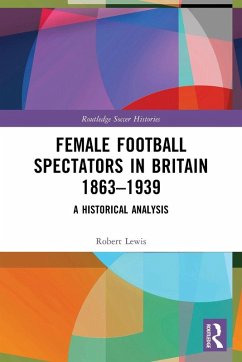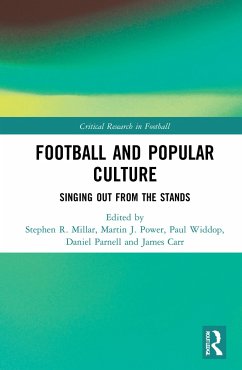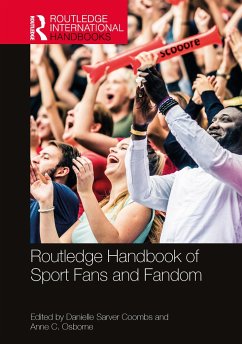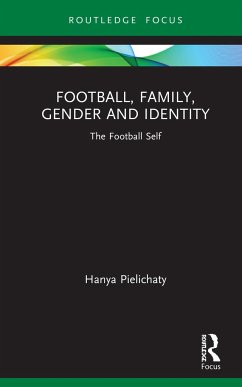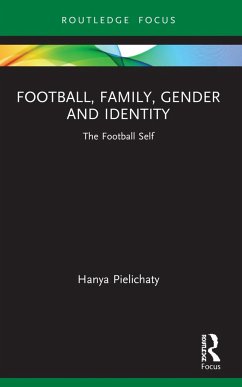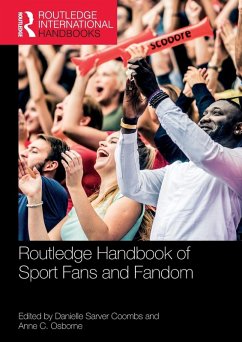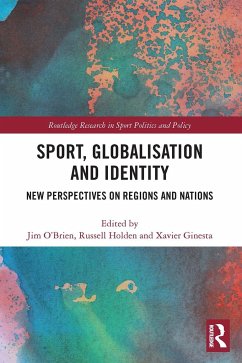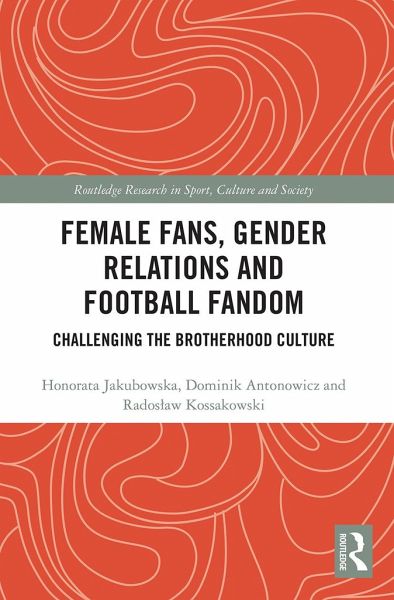
Female Fans, Gender Relations and Football Fandom
Challenging the Brotherhood Culture
Versandkostenfrei!
Versandfertig in 6-10 Tagen
45,99 €
inkl. MwSt.
Weitere Ausgaben:

PAYBACK Punkte
23 °P sammeln!
This book assesses the transformation of football fan culture from a gender perspective. Referring to the notions of homosociality, hegemonic masculinity and performative perspectives on gender and fandom, it investigates the processes of women entering the world of football fandom.Drawing on multidimensional qualitative and quantitative research, the book analyses different aspects of female fandom, such as women's socialisation to be a fan, building their sense of fan identity, ways of performing fandom, and gender. Also, it explores the response of male fans by shedding light on the sense-m...
This book assesses the transformation of football fan culture from a gender perspective. Referring to the notions of homosociality, hegemonic masculinity and performative perspectives on gender and fandom, it investigates the processes of women entering the world of football fandom.
Drawing on multidimensional qualitative and quantitative research, the book analyses different aspects of female fandom, such as women's socialisation to be a fan, building their sense of fan identity, ways of performing fandom, and gender. Also, it explores the response of male fans by shedding light on the sense-making process of a growing number of female fans in the stands and its consequences for prevailingly male football culture. This study stands out for its richness and diversity of empirical material used in order to make a significant contribution to our understanding of social dynamics related to the changing nature of female football fandom.
The book is fascinating reading for researchers and students in a broad range of areas, including gender studies, sociology of sport, football, women's studies and Central Eastern European studies. It is also a valuable resource for scholars, and football and club authorities who have an interest in understanding the development of female football fandom and its impact on the male fandom community.
Drawing on multidimensional qualitative and quantitative research, the book analyses different aspects of female fandom, such as women's socialisation to be a fan, building their sense of fan identity, ways of performing fandom, and gender. Also, it explores the response of male fans by shedding light on the sense-making process of a growing number of female fans in the stands and its consequences for prevailingly male football culture. This study stands out for its richness and diversity of empirical material used in order to make a significant contribution to our understanding of social dynamics related to the changing nature of female football fandom.
The book is fascinating reading for researchers and students in a broad range of areas, including gender studies, sociology of sport, football, women's studies and Central Eastern European studies. It is also a valuable resource for scholars, and football and club authorities who have an interest in understanding the development of female football fandom and its impact on the male fandom community.





